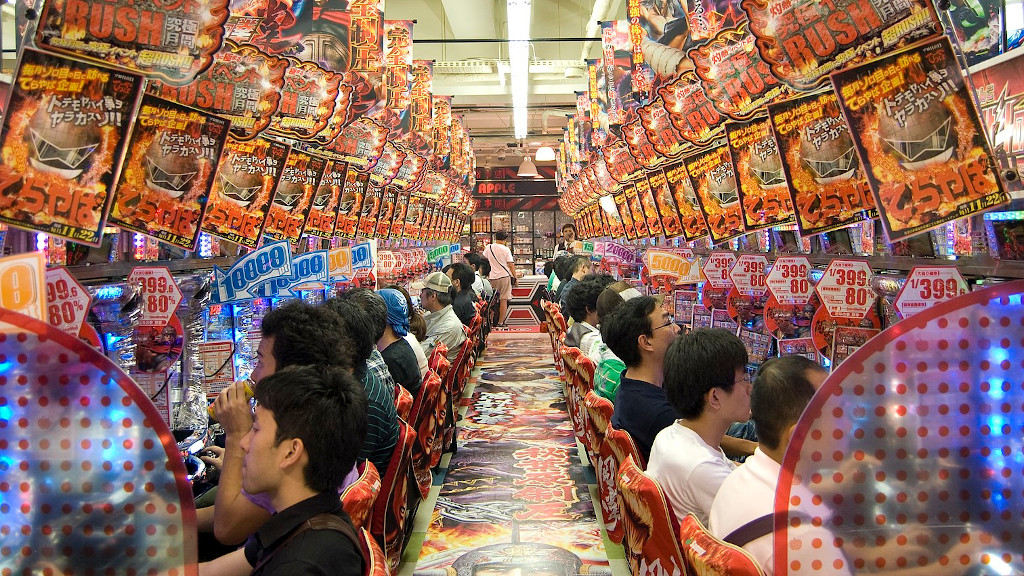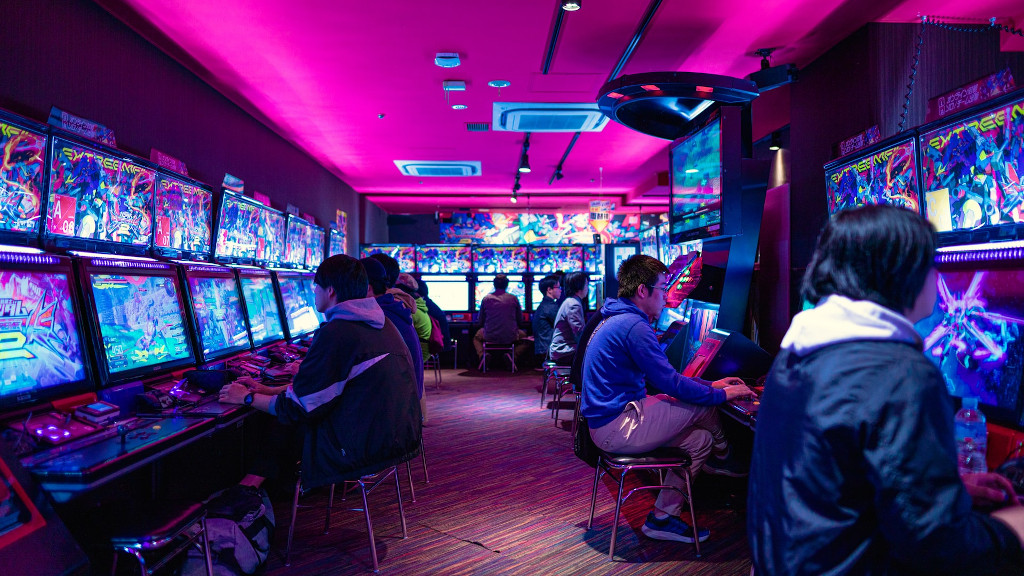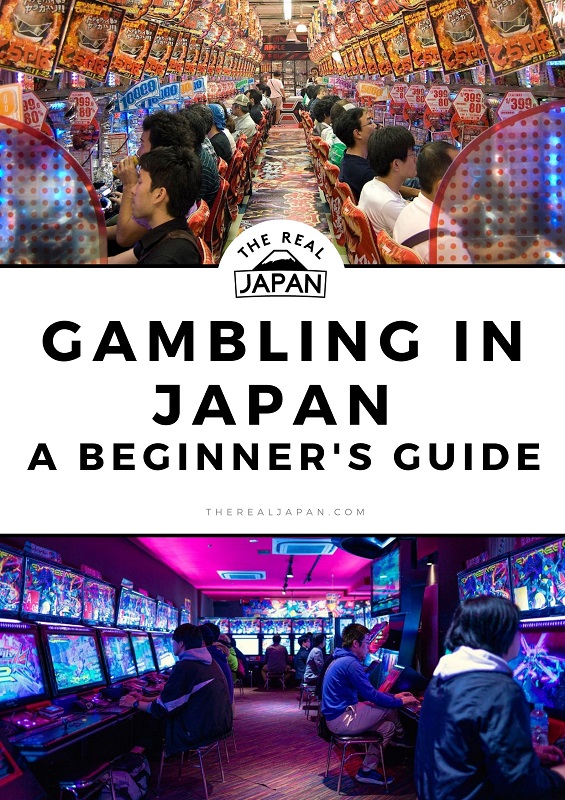Gambling in Japan – if there is something you can be certain about, it’s that Japan has got an ample gambling culture. This despite the country having strict gambling laws. Most forms of gambling are banned in Japan but there are a number of exceptions. You may well have heard of pachinko, but what of keirin, kyoutei or toto?
Read my introductory guide to gambling in Japan to learn more.
One-Sentence Summary
Despite having some of the world’s strictest gambling laws with most forms banned, Japan maintains a massive gambling culture through legal exceptions like pachinko parlours, horse racing, and unique sports betting on keirin (cycle racing), kyoutei (powerboat racing), and toto (soccer), plus a growing online gambling scene.
Key Takeaways
It’s a “love-hate” relationship: Japan has some of the strictest gambling laws in the world, yet it also has a massive gambling culture. Most forms of gambling are illegal, but there are a few exceptions.
Pachinko is king: This pinball-like machine is a national obsession and the most popular form of gambling in Japan. It’s a unique and noisy experience you won’t find anywhere else.
- Horse racing is huge: The biggest sport for betting in Japan is horse racing, with a massive following and huge sums of money wagered.
Bet on bikes and boats: Keirin (cycle racing) and Kyoutei (powerboat racing) are two other popular forms of sports betting that are unique to Japan.
You can bet on soccer: “Toto” is the name for soccer betting in Japan, and it’s another legal way to try your luck.
Online gambling is growing: While technically a “grey area,” many Japanese people are now using online casinos and mobile gambling sites to get their fix.
Want More Free Content Like This?
- One-Sentence Summary
- Key Takeaways
- Japan's gambling culture
- What is pachinko?
- An assault on the senses
- VIDEO: The Loudest Place in Japan: A Japanese Pachinko Parlor
- Horse racing
- VIDEO: How To Bet On Horse Racing In Japan
- Keirin – cycle racing
- VIDEO: Keirin Men's Cycle Race
- Kyoutei – powerboat racing
- VIDEO: Fukuoka Boat Race
- Sports Shinko Kuji, aka Toto – soccer betting
- Japan's gambling dynamic
- Gambling in Japan FAQs – Frequently Asked Questions
- Leave A Comment / Ask A Question
- About the Author
- RESOURCES
Many working men and women hit the bookmakers after hours – it’s an immensely popular pastime, both for individuals and society. Generally, the Japanese focus on sports betting, with horse racing leading the way.
That’s not to say that other casino-style games are out of favour; and there are a few gambling activities native to this unique island nation.
Japan’s gambling culture
Of course, like many countries the world over, the online gambling scene has seen growth as well.
Players sign up for web casinos since they can play for bigger bonuses and often higher winning chances. There are even sites dedicated to helping the curious navigate the wealth of online Japanese casinos. As a subsidiary of internet gaming, gambling on mobile has also risen in popularity in Japan.
Aside from an overview of Japan’s gambling and casino culture, let’s focus on the games specific to the Land of the Rising Sun. Maybe you have heard of pachinko, but do you know how it works? And what other means of play might you expect to try your luck with while visiting Japan?

What is pachinko?
As mentioned above, this type of game is the most popular gaming activity native to Japan. Its notoriety goes beyond the borders, and lovers of Japanese culture often dip into pachinko’s waters. The pastime has has even been featured in the hit Korean TV drama Pachinko. But how exactly does it work?
Well, it’s surprisingly similar to regular slot machines. Generally, games are low-stake, as to prevent problematic levels of play. Contrary to Western slots, pachinko games will offer extra balls instead of spins. You convert your in-game winnings to more balls or other bonus game features.

While Japan’s regulation forbids cash prizes, you can exchange the value of your winnings in prizes such as cigarettes, chocolate bars, pencils, lighters, and the like. Modern pachinko games run on LCD technology, and they feature musical scores and kaleidoscopic screens. Many pachinko parlours are huge, evidence of the game’s popularity.
An assault on the senses
If you’re tempted to have a go at pachinko, be warned. Many still allow smoking and the ventilation in some leaves a lot to be desired. But even if smoking is banned, nothing quite prepares you for the auditory and visual onslaught inside one of these gaming emporiums.
VIDEO: The Loudest Place in Japan: A Japanese Pachinko Parlor
The sheer volume of the dozens, often hundreds of gaming machines can be deafening. It’s often said that the locals are able to enter a meditative, zen-like state when playing pachinko. That must be true. It’s the only way I can see how they can bear the assault on the senses!
Horse racing
Japan’s biggest sport for gambling is probably horse racing. Here it is a down-to-earth affair, with the focus very much on placing bets rather than the trappings of ‘the sport of kings’ horse racing tends to enjoy in other countries. Would-be winners can even attend classes on how to bet on races.
VIDEO: How To Bet On Horse Racing In Japan
Betting on horse racing generated $27 billion in revenue in 2019, and if you ever get the chance to attend a meeting, it’s a memorable experience.
Keirin – cycle racing
Since Japan is highly invested in the bookmaking industry, it’s no surprise that there is an all-Japanese sport event where people may place bets. Keirin is a bicycle racing competition. While there are few velodromes dedicated to it, the betting activity has a significant following.
VIDEO: Keirin Men’s Cycle Race
The sport is generally regarded as male-only, but female racers have started to appear in recent years and this has broadened the diversity of betting. Moreover, Keirin has gone over the border, as South Korea has recently opened its first dedicated velodrome.
Kyoutei – powerboat racing
Kyoutei is the extreme side of Nihon bookmaking, as it involves powerboat races. The six participating boats must race around two buoys, on an overall distance of 300m. It’s noteworthy that, since the beginnings of this competition, men and women have competed together in teams. Like Keirin, Kyoutei has begun to gain a following in neighbouring Korea, as well.
VIDEO: Fukuoka Boat Race
Sports Shinko Kuji, aka Toto – soccer betting
Getting back to the classics, ‘toto’ is a form of soccer betting. Punters have the option of placing bets on the winning team or the exact outcome of a match. Sports Shinko Kuji also qualifies as a bridge between physical and online gambling, as players may purchase tickets both online and in designated stores.
Japan’s gambling dynamic
It is clear that in Japan games of chance have a significant following. What’s more, they aren’t solely of foreign origin; many of the activities Japanese punters engage in are native to them.

That isn’t to say that said activities have no fans outside the borders; South Korea has imported at least two of the primary sports competitions to wager on. Furthermore, pachinko is famous enough even in the Western world, and some Japanese culture aficionados play pachinko via apps on their smartphones.
Japan’s gambling dynamic is just as colourful as other cultural aspects of interest to travellers from all over the world.
Gambling in Japan FAQs – Frequently Asked Questions
Q: Is gambling legal in Japan?
A: It’s complicated. Japan has extremely strict gambling laws and most forms of gambling are technically illegal. However, there are several notable legal exceptions including pachinko, horse racing, keirin (cycle racing), kyoutei (powerboat racing), and toto (soccer betting). This creates a paradox where Japan simultaneously has strict anti-gambling laws and a massive gambling culture.
Q: What is pachinko and how does it work?
A: Pachinko is the most popular form of gambling in Japan and a gaming activity unique to the country. It’s surprisingly similar to slot machines but uses balls instead of traditional reels. Games are generally low-stake to prevent problematic gambling. You convert your in-game winnings to more balls or bonus game features. While cash prizes are forbidden by law, you can exchange winnings for prizes like cigarettes, chocolate bars, pencils, and lighters.
Q: What should I expect inside a pachinko parlour?
A: Be prepared for a serious assault on your senses! Many parlours still allow smoking (though some have banned it), and the sheer volume from dozens or even hundreds of gaming machines can be deafening. Modern pachinko games run on LCD technology featuring musical scores and kaleidoscopic screens. The auditory and visual onslaught is intense. Locals apparently enter a meditative, zen-like state when playing – it must be the only way they bear the sensory overload!
Q: Are pachinko parlours worth visiting?
A: Absolutely, even just for the experience alone. Many pachinko parlours are huge, reflecting the game’s enormous popularity. It’s a uniquely Japanese phenomenon that gives you insight into local culture, though you might not want to stay for long given the noise and atmosphere. It’s definitely something you won’t experience anywhere else in the world.
Q: What is keirin?
A: Keirin is an all-Japanese bicycle racing competition where spectators place bets on the outcomes. While there are relatively few velodromes dedicated to it, the betting activity has a significant following. Traditionally regarded as male-only, female racers have started appearing in recent years, broadening the diversity of betting. The sport has even spread beyond Japan’s borders, with South Korea opening its first dedicated velodrome.
Q: What is kyoutei?
A: Kyoutei represents the extreme side of Japanese bookmaking – it’s powerboat racing. Six participating boats race around two buoys over a 300-metre distance. Unlike many sports, men and women have competed together in teams since the competition’s beginnings. Like keirin, kyoutei has begun gaining followers in neighbouring Korea as well.
Q: Can I bet on football (soccer) in Japan?
A: Yes! It’s called “toto” or Sports Shinko Kuji – a form of football betting where punters can place bets on the winning team or the exact outcome of a match. Toto bridges physical and online gambling, as players can purchase tickets both online and in designated stores throughout Japan.
Q: What’s the most popular sport for gambling in Japan?
A: Horse racing is probably Japan’s biggest gambling sport. Unlike the “sport of kings” image it carries in other countries, horse racing in Japan is a down-to-earth affair with the focus squarely on placing bets rather than social trappings. Would-be winners can even attend classes on how to bet on races. In 2019, betting on horse racing generated $27 billion in revenue. Attending a meeting is a memorable experience – recommended!
Q: Is online gambling popular in Japan?
A: Yes, the online gambling scene has seen significant growth. Players sign up for web casinos since they can play for bigger bonuses and often have higher winning chances. There are even sites dedicated to helping people navigate the world of online Japanese casinos. As a subsidiary of internet gaming, mobile gambling has also risen in popularity, with some people even playing pachinko via smartphone apps.
Q: Why does Japan have such a big gambling culture if it’s mostly illegal?
A: It’s a fascinating cultural paradox. Many working men and women hit the bookmakers after hours – it’s an immensely popular pastime both individually and societally. The Japanese generally focus on sports betting, with horse racing leading the way. The legal exceptions (pachinko, specific sports betting) are extremely popular, and the online gambling scene operates in a legal grey area that many Japanese people take advantage of.
Q: Are there gambling activities unique to Japan?
A: Absolutely! Pachinko is the most famous – a pinball-like machine experience you won’t find anywhere else. Keirin and kyoutei are also distinctly Japanese sports competitions that originated in Japan. While these have started gaining international followers (particularly in South Korea), they remain primarily Japanese phenomena. Even the way horse racing is approached – as a down-to-earth betting affair – feels uniquely Japanese.
Q: Can foreigners participate in these gambling activities?
A: Yes, foreigners can visit pachinko parlours, attend horse racing meetings, and participate in betting on keirin, kyoutei, and toto. There are even experiences you can book, such as late-night pachinko tours in Shinjuku, which can help you navigate the scene with local guidance.
Q: What should first-timers know about gambling in Japan?
A: Start with horse racing for a fun half-day out that’s relatively accessible and memorable. If you’re curious about pachinko, visit a parlour just for the cultural experience, but be prepared for the noise and atmosphere – it’s not for everyone. Consider the legal grey areas around online gambling. Most importantly, understand that gambling in Japan is highly regulated, so stick to the legal exceptions like pachinko, horse racing, and sanctioned sports betting.
Q: How does Japan’s gambling culture reflect broader Japanese society?
A: Japan’s gambling dynamic is just as colourful as other cultural aspects that interest travellers. The paradox between strict laws and massive participation reveals something about Japanese culture – the ability to operate within tightly defined rules while still finding outlets for entertainment and stress relief. Many activities are native to Japan, showing how the country adapts global concepts (like betting) to its own unique cultural framework.
Q: Where can I learn more or try these activities?
A: There are various resources available (see the Resources section below) including official websites for sports like kyoutei powerboat racing. You can book experiences like late-night pachinko tours through platforms that specialize in Japanese cultural activities. For horse racing, attending a meeting is straightforward – classes are even available to teach you how to bet on races. Each activity offers its own unique window into Japanese culture.
Have you tried gambling in Japan or attended any of the associated sports events? If so, share your experiences and tips with others by leaving a comment below.
About the Author

A writer and publisher from England, Rob has been exploring Japan’s islands since 2000. He specialises in travelling off the beaten track, whether on remote atolls or in the hidden streets of major cities. He’s the founder of the multi-award-winning TheRealJapan.com.
RESOURCES
Further Related Guides
5 Fascinating Lessons Films Teach Us About Japanese Culture
Exploring Tokyo Gaming Culture From Classic Arcades to VR Experiences
Japanese Gambling Sport Websites
Kyoutei Power Boat Racing Japan
Experiences
Late Night Pachinko in Shinjuku
If you enjoyed this article please share this image online:


This is awesome to know as my husband and I are visiting Japan this spring, so thank you for the insight 🙂
– Sara Billings
You’re welcome Sara. Have a great trip!
Hi Rob,
Wow. Definitely sounds like an assault on the sense to me. Diving into that video now. I never knew Japan had such a gambling culture. Interesting. I imagine gambling allows folks to let off some steam.
Ryan
Yeah, entering a pachinko parlour isn’t for the faint-hearted! It’s deafening!
I think you’re probably right about it being an outlet for some folks. The Japanese have a lot of traditional games but betting in the modern era is still tightly regulated.
Aside from playing pachinko, I’ve tried betting on horse racing (it’s a fun half day out) but none of the others – so far!